
Gjilan: The Heart of Eastern Kosovo
Nestled in the rolling hills of Eastern Kosovo, Gjilan is a city rich in history, culture, and natural beauty. Known for its warm hospitality and vibrant community, Gjilan offers an authentic experience for anyone looking to explore the lesser-known gems of the Balkans. The city is a harmonious blend of the old and the new. As you wander through the streets of Gjilan, you'll encounter charming Ottoman-era houses, bustling markets, and modern cafes. The Clock Tower stands as a timeless sentinel over the city, a reminder of Gjilan's storied past. A visit to the Ethnological Museum provides a deep dive into the region's cultural heritage, showcasing traditional costumes, crafts, and artifacts. Nature lovers will find much to admire in Gjilan. The nearby Morava e Binçës river and the scenic hills offer numerous hiking and picnicking opportunities. The city also boasts several beautiful parks, perfect for a leisurely stroll or a family outing. Additionally, Gjilan's local cuisine is a delightful discovery, with mouth-watering dishes that reflect the region’s rich agricultural bounty and culinary traditions.
Local tips in Gjilan
- Visit the local markets early in the morning to experience the bustling atmosphere and find the freshest produce.
- Try traditional dishes like Flija and Pite when dining in local restaurants; they are local favorites.
- Take a day trip to the nearby Morava e Binçës river for a scenic hike and a picnic.
- Engage with locals; their stories and recommendations can enrich your visit and lead you to hidden gems.
- Check the cultural calendar as Gjilan hosts various festivals and events that showcase local traditions and arts.
Gjilan: The Heart of Eastern Kosovo
Nestled in the rolling hills of Eastern Kosovo, Gjilan is a city rich in history, culture, and natural beauty. Known for its warm hospitality and vibrant community, Gjilan offers an authentic experience for anyone looking to explore the lesser-known gems of the Balkans. The city is a harmonious blend of the old and the new. As you wander through the streets of Gjilan, you'll encounter charming Ottoman-era houses, bustling markets, and modern cafes. The Clock Tower stands as a timeless sentinel over the city, a reminder of Gjilan's storied past. A visit to the Ethnological Museum provides a deep dive into the region's cultural heritage, showcasing traditional costumes, crafts, and artifacts. Nature lovers will find much to admire in Gjilan. The nearby Morava e Binçës river and the scenic hills offer numerous hiking and picnicking opportunities. The city also boasts several beautiful parks, perfect for a leisurely stroll or a family outing. Additionally, Gjilan's local cuisine is a delightful discovery, with mouth-watering dishes that reflect the region’s rich agricultural bounty and culinary traditions.
When is the best time to go to Gjilan?
Iconic landmarks you can’t miss
Newborn Monument
Discover the Newborn Monument in Pristina, a powerful symbol of Kosovo's independence, rich history, and vibrant culture.
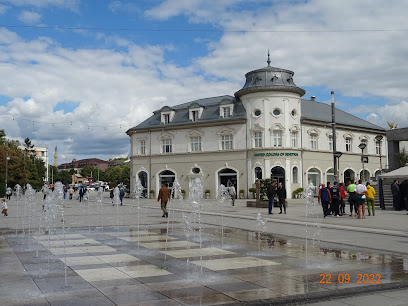
Prizren Fortress
Explore the stunning Prizren Fortress, a historical gem offering breathtaking views and a glimpse into Kosovo's rich past.
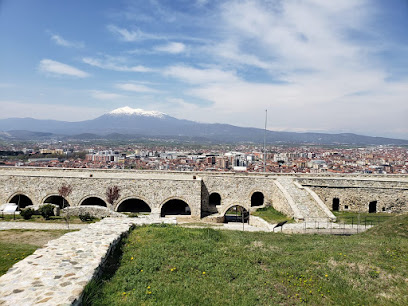
Memorial Complex Adem Jashari
Discover the Memorial Complex Adem Jashari, a historic site honoring the Albanian struggle for independence and cultural heritage in Prekaz.
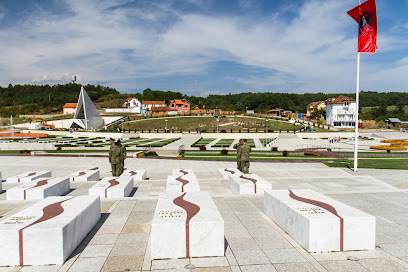
BEAR SANCTUARY Prishtina
Explore the Bear Sanctuary Prishtina, where rescued bears find refuge and visitors discover the importance of wildlife conservation in a serene natural setting.
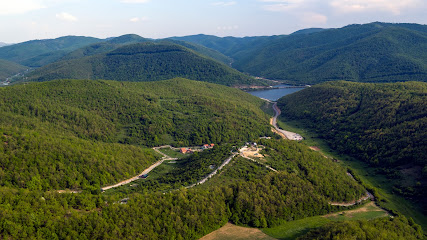
Gadima Cave
Discover the stunning beauty of Gadima Cave in Kosovo, a unique natural wonder filled with breathtaking stalactites and an unforgettable underground adventure.
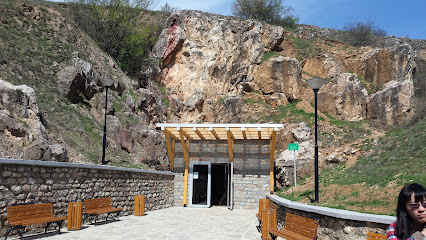
Kosovo Museum
Explore Kosovo's vibrant heritage at the Kosovo Museum, where history and culture come to life through captivating exhibits and artifacts.
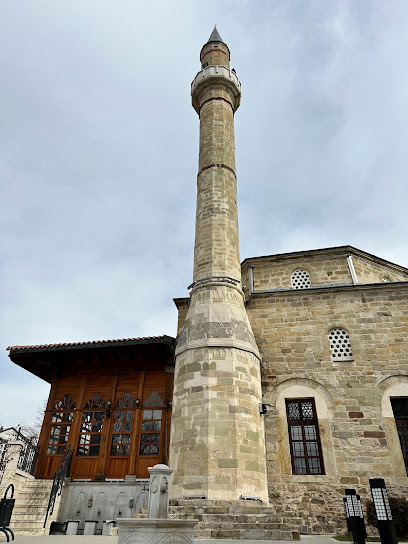
Gazimestan Monument
Explore the Gazimestan Monument, a historic landmark and war memorial that offers stunning views and deep insights into Kosovo's rich heritage.
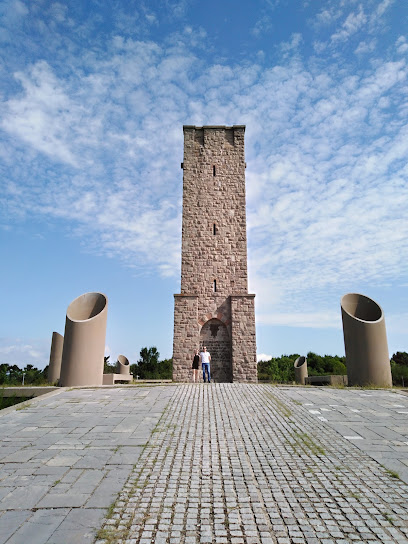
Stone bridge
Explore the historic Stone Bridge in Prizren, a stunning architectural gem and a symbol of cultural heritage that connects the past with the present.
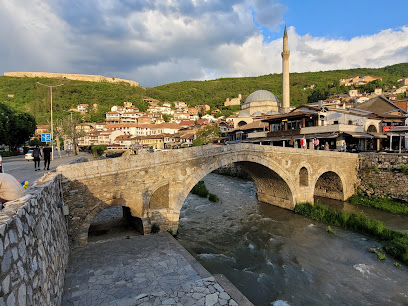
Ethnographic Museum - Muzeu Etnologjik
Explore Kosovo's cultural heritage at the Ethnographic Museum in Pristina, showcasing traditional artifacts and rich history.
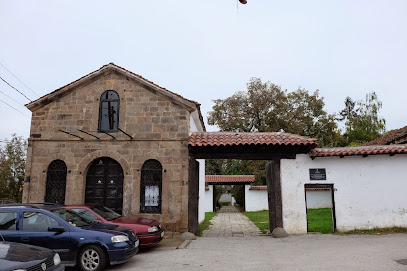
Zvechan Fortress
Explore the historic Zvechan Fortress, a breathtaking landmark offering stunning views and a journey through Kosovo's rich past.
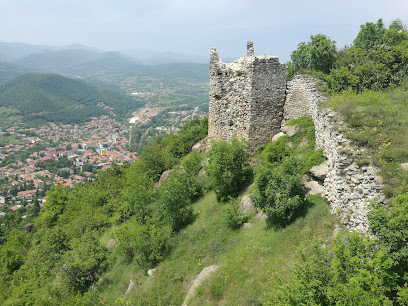
Te Papaku
Experience the heart of Gjilan at Te Papaku, a cozy cafe offering delicious local flavors and a vibrant atmosphere.
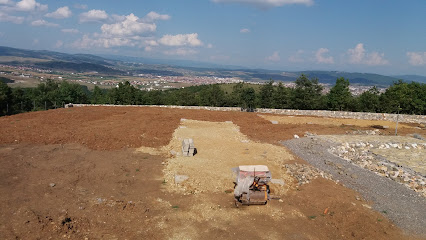
Best Western Hotel Galla
Discover the comfort of Best Western Hotel Galla, ideally located near Prishtina International Airport, offering modern amenities and a welcoming atmosphere.

Restaurant Azzurro
Experience authentic Italian cuisine at Restaurant Azzurro in Gjilane, where delicious pizzas and traditional dishes await every food lover.
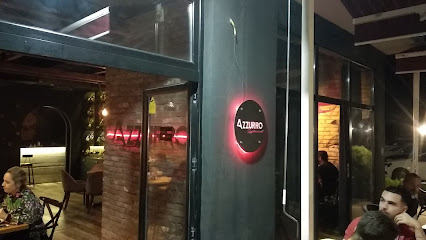
Hani
Discover the vibrant atmosphere and delicious drinks at Hani, the premier bar in Gjilan, perfect for socializing and relaxing.
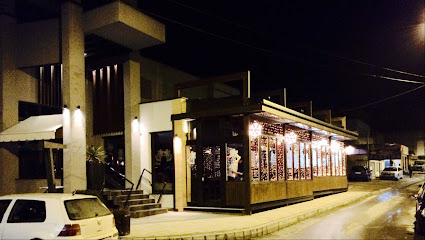
Bill Clinton Statue
Explore the Bill Clinton Statue in Pristina, a symbol of gratitude and historical significance reflecting Kosovo's ties to the United States.
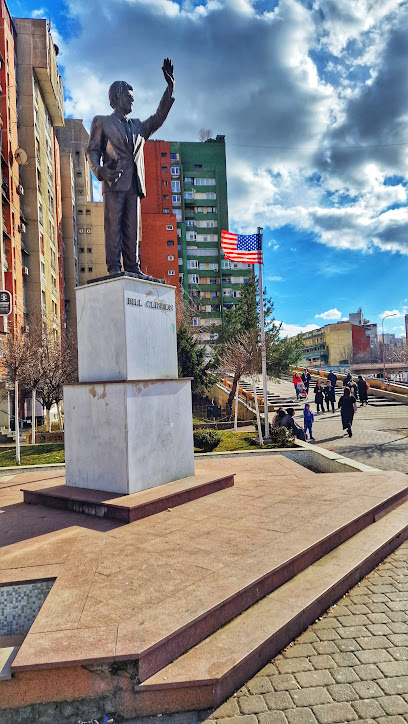
Unmissable attractions to see
Venerable Prohor Pchinjski
Explore the historical Venerable Prohor Pchinjski Monastery in Klenike, a serene tourist attraction rich in culture and spiritual heritage.
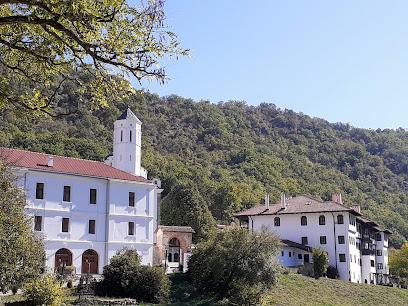
Serbian Orthodox Monastery Gračanica
Discover the captivating Serbian Orthodox Monastery Gračanica, a UNESCO World Heritage site known for its stunning frescoes and tranquil atmosphere.
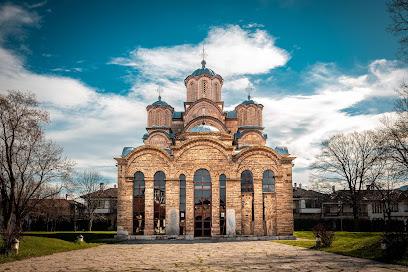
Sharr Mountain National Park
Discover Sharr Mountain National Park: A breathtaking escape into nature's paradise with adventure, wildlife, and stunning landscapes.
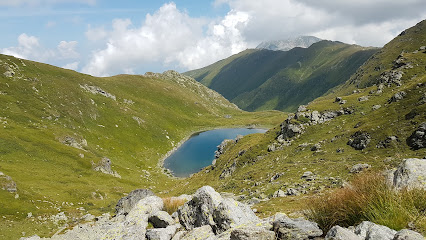
Gërmia Park
Gërmia Park: A Serene Urban Oasis in Pristina Offering Scenic Walks, Relaxation, and Outdoor Fun for Everyone.
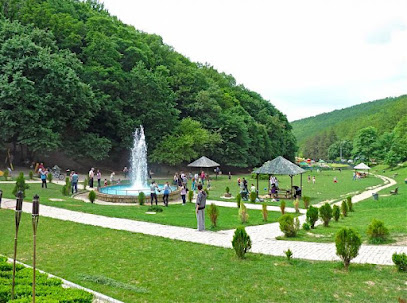
Cathedral of Saint Mother Teresa
Explore the stunning Cathedral of Saint Mother Teresa in Pristina, a blend of modern architecture and rich cultural history.
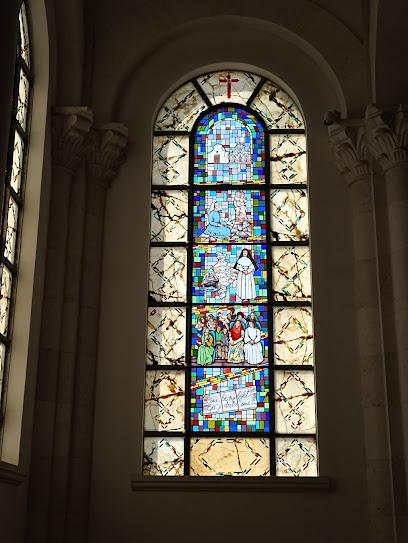
Gadime Cave
Discover the stunning beauty of Gadime Cave, where nature's artistry comes alive in Kosovo's underground wonderland, perfect for adventurous tourists.
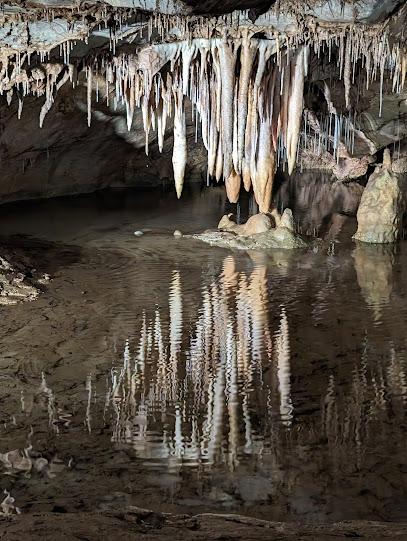
BEAR SANCTUARY Prishtina
Experience the magic of rescued bears and support wildlife conservation at Bear Sanctuary Prishtina, a unique wildlife park in Kosovo.
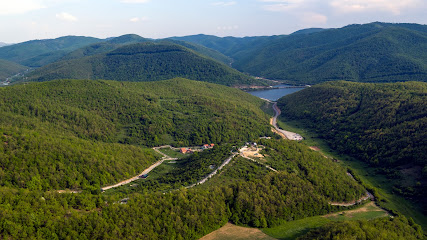
Gadima Cave
Discover the stunning beauty of Gadima Cave, a natural wonder filled with unique geological formations and rich history, perfect for adventurers and nature lovers.
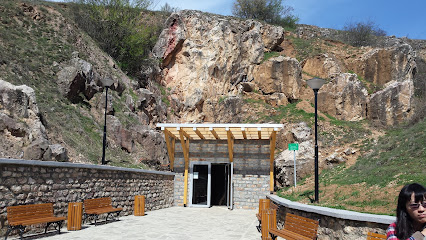
The Great Mosque
Discover the Great Mosque of Pristina, a stunning architectural masterpiece reflecting the rich heritage and cultural significance of Kosovo.
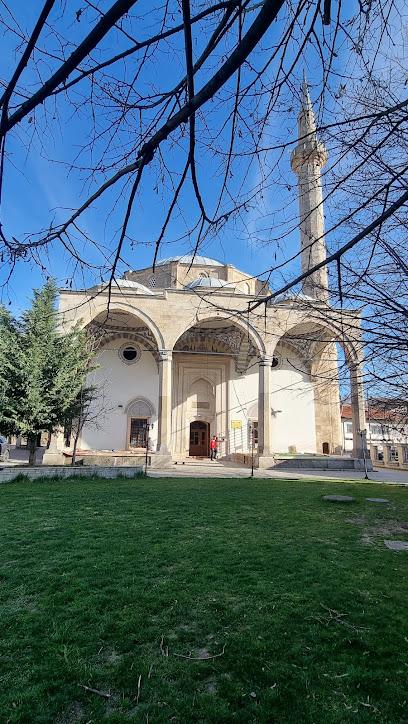
Kosovo Museum
Explore the rich cultural heritage at Kosovo Museum, where history comes alive through captivating exhibits and artifacts.
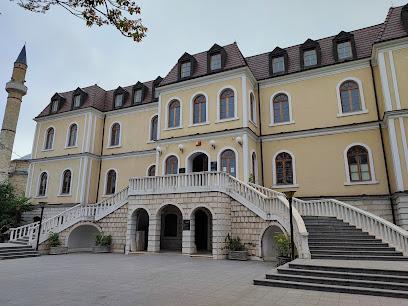
Fadil Vokrri Stadium
Experience the thrill of live sports at Fadil Vokrri Stadium, Pristina's premier venue for football and cultural events.
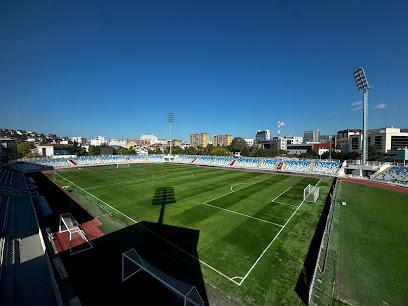
Sheshi Skënderbeu, Prishtinë
Explore Sheshi Skënderbeu: Pristina's vibrant central square, rich in history, culture, and local flavors, perfect for a memorable visit.
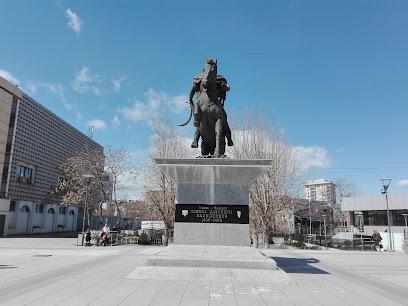
The National University Library of Kosovo Pjetër Bogdani
Visit the National University Library of Kosovo, a stunning architectural gem and a rich cultural hub in the heart of Pristina.
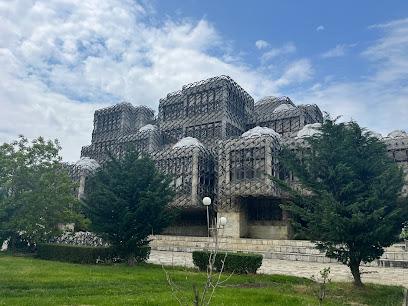
Skopje Aqueduct
Discover the historic Skopje Aqueduct, an architectural marvel that showcases the rich heritage of Skopje amidst a serene natural setting.
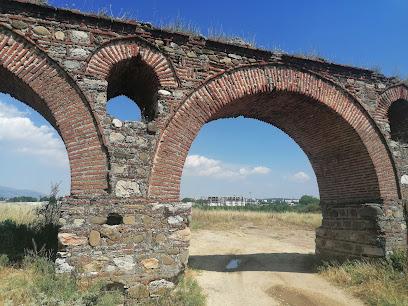
Ethnographic Museum - Muzeu Etnologjik
Explore Kosovo's cultural roots at the Ethnographic Museum in Pristina, showcasing heritage, traditions, and the vibrant lives of its people.
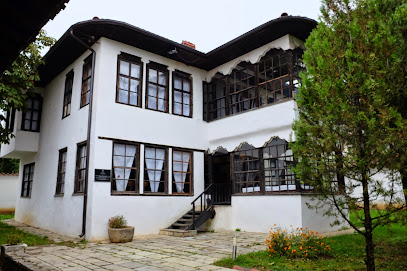
Essential places to dine
Resort PLANET Gjilan
Experience exquisite dining amidst serene landscapes at Resort PLANET Gjilan - your perfect getaway in Kosovo.
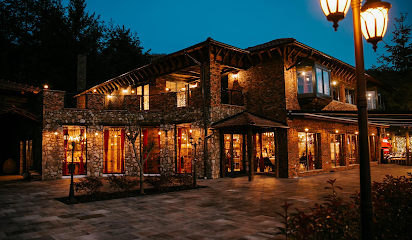
Vali Ranch
Discover Vali Ranch: A culinary delight with family-friendly fun featuring exquisite dining, horse riding adventures, and miniature golf!
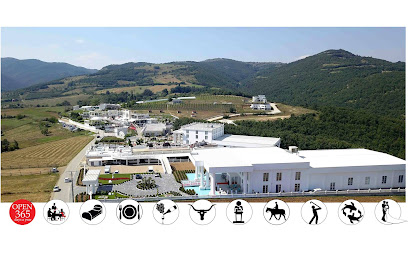
Hotel Astoria Luxury & SPA
Discover luxury at Hotel Astoria Luxury & SPA in Gjilan – where exquisite dining meets serene spa experiences.

Viva Fresh Store
Discover authentic local cuisine at Viva Fresh Store in Gjilane—where every meal is a celebration of flavor and freshness.
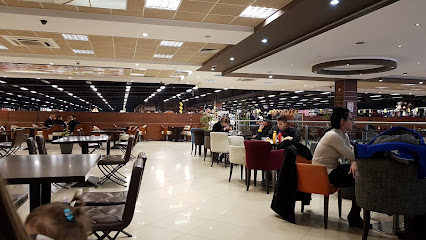
Restaurant Garden
Experience authentic flavors at Restaurant Garden in Gjilan – where local ingredients meet culinary creativity.
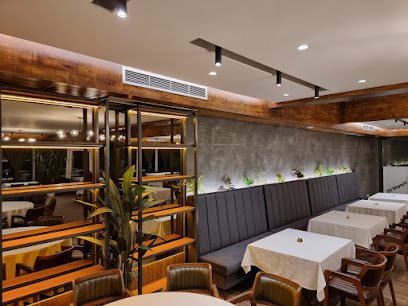
Bujana Bp
Experience authentic Kosovar cuisine at Bujana Bp in Gjilan—where every dish tells a story of local flavors.
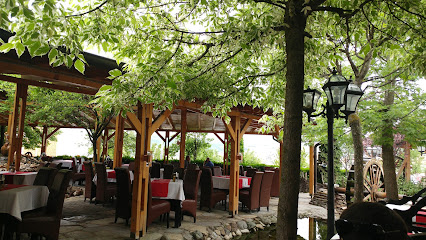
Restaurant Pojata
Discover the heart of Gjilan's culinary scene at Restaurant Pojata – where tradition meets flavor in every bite.
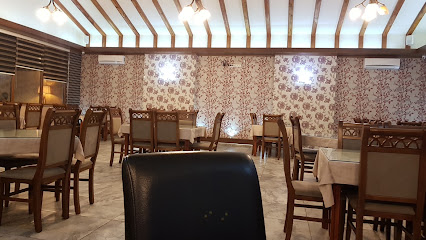
Restaurant Bujana
Experience authentic Kosovo flavors at Restaurant Bujana in Gjilan – where culinary tradition meets modern hospitality.
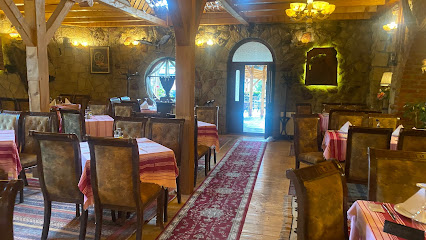
Restaurant Shaqa
Discover culinary delights at Restaurant Shaqa in Gjilane—where local flavors meet international cuisine in an inviting atmosphere.
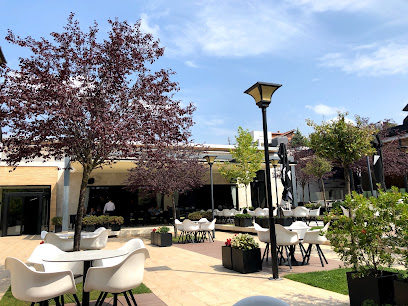
Restaurant Azzurro
Experience authentic Italian cuisine at Restaurant Azzurro in Gjilane – the ultimate destination for pizza lovers and culinary enthusiasts.
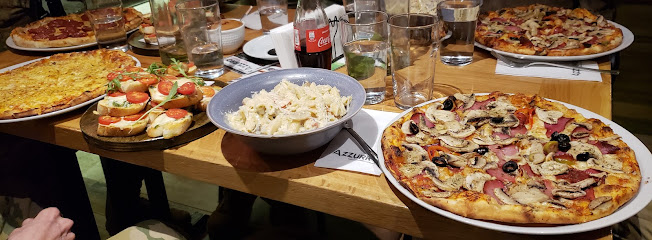
MAROA
Discover Maroa in Gjilan – where culinary excellence meets vibrant nightlife with live music and great coffee.
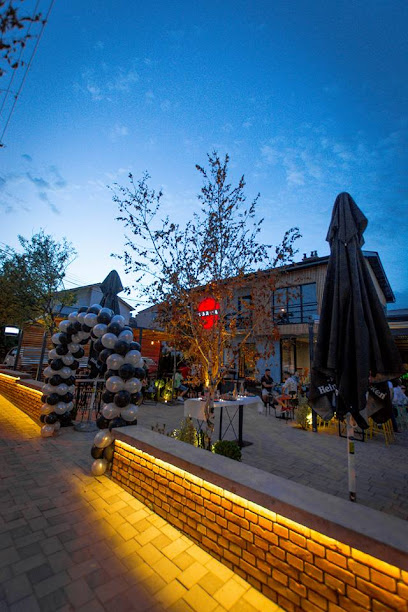
Acorn Restaurant Gjilan
Discover authentic local cuisine at Acorn Restaurant Gjilan - where tradition meets taste in every dish.
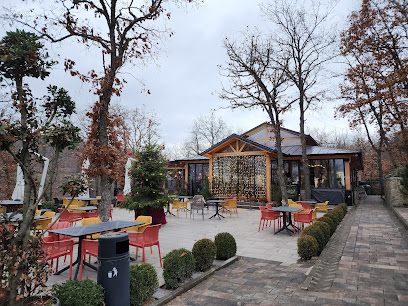
Restaurant Cuco
Experience exceptional local and international cuisine at Restaurant Cuco in Gjilan - where every dish is crafted with care.
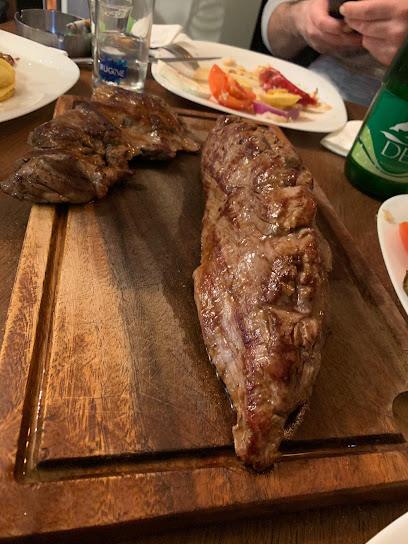
Bon Ami
Experience authentic Kosovar cuisine at Bon Ami in Gjilan – where every meal tells a story of tradition and flavor.
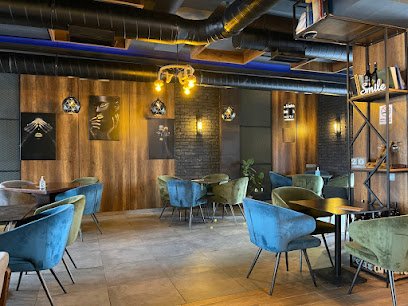
RESTAURANT LOUNGE BAR BARON
Savor delectable dishes and vibrant drinks at Restaurant Lounge Bar Baron in Gjilan - where every meal is a celebration of flavors.
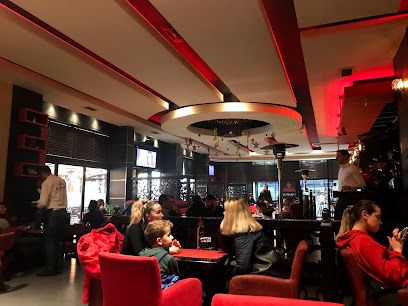
Markets, malls and hidden boutiques
ETC
Discover Gjilan's vibrant shopping mall, where local culture meets modern retail therapy in the heart of Kosovo.
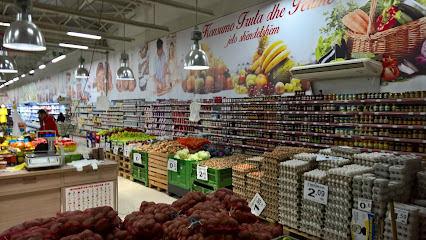
Agmia Center
Discover the vibrant shopping experience at Agmia Center in Gjilan, where local culture meets modern retail.
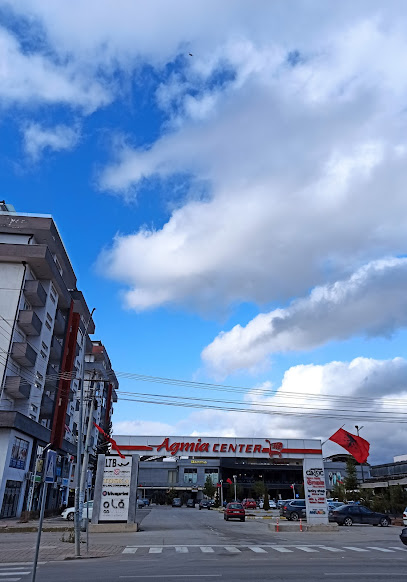
Durresi SHPK Gjilan
Explore Durresi SHPK Gjilan, a vibrant shopping mall offering diverse retail, dining, and entertainment options in the heart of Gjilan.
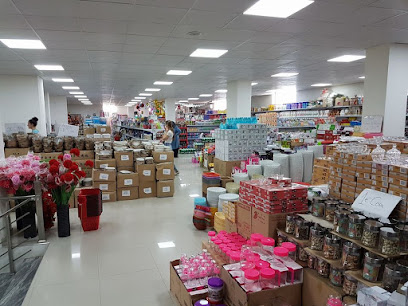
Jumbo Gjilan
Explore Jumbo Gjilan, the ultimate shopping destination in Kosovo, offering a wide array of products and a delightful shopping experience.
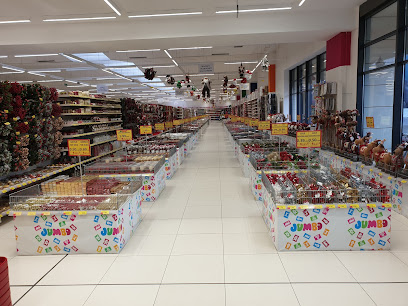
Albanica Mall
Discover the vibrant Albanica Mall in Gjilan, a shopping paradise with diverse stores, delightful dining, and family-friendly entertainment.
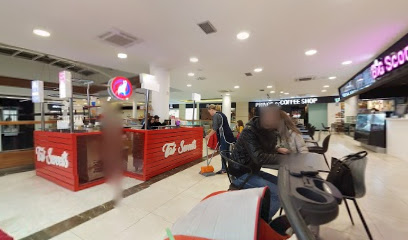
Albi Mall Gjilan
Discover shopping, dining, and entertainment at Albi Mall in Gjilan, a vibrant destination for tourists seeking local culture and modern comforts.
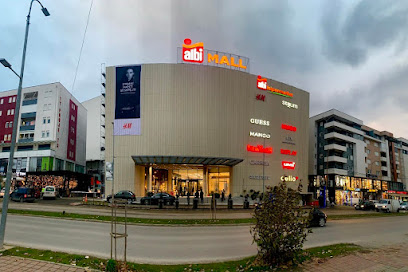
MIGROSI boutique
Experience the charm of Kosovar fashion at MIGROSI Boutique – where contemporary style meets local craftsmanship in Gjilan.
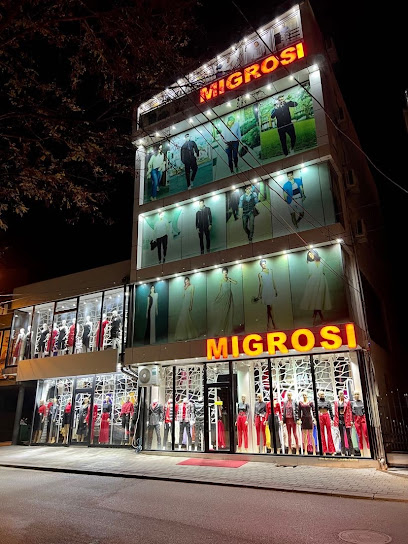
Butiku Regina
Explore Butiku Regina in Gjilan for a unique shopping experience, featuring stylish women's clothing that embodies local fashion trends.

Gorenje
Explore Gorenje in Gjilan, a vibrant shopping mall offering diverse retail, delicious dining, and a taste of Kosovo's local culture.
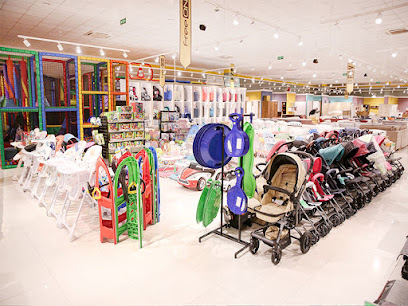
Shpk Geti Market
Discover the essence of Gjilan at Shpk Geti Market, where local culture meets everyday convenience and vibrant shopping.
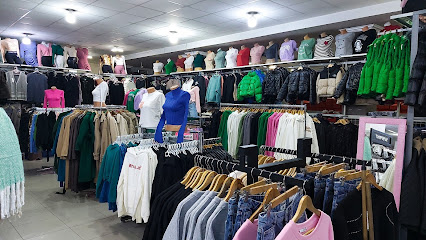
Classic Fashion
Explore Classic Fashion in Gjilan for a stylish array of men's clothing that combines quality, contemporary design, and exceptional service.
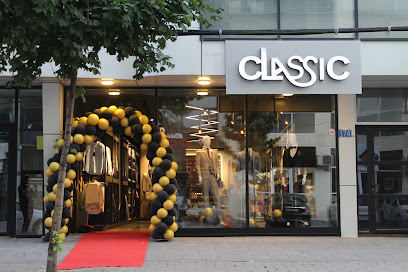
ALEKSA STORE
Explore ALEKSA STORE in Gjilan for a unique shopping experience filled with local crafts, fashion, and culinary delights that capture the essence of Kosovo.
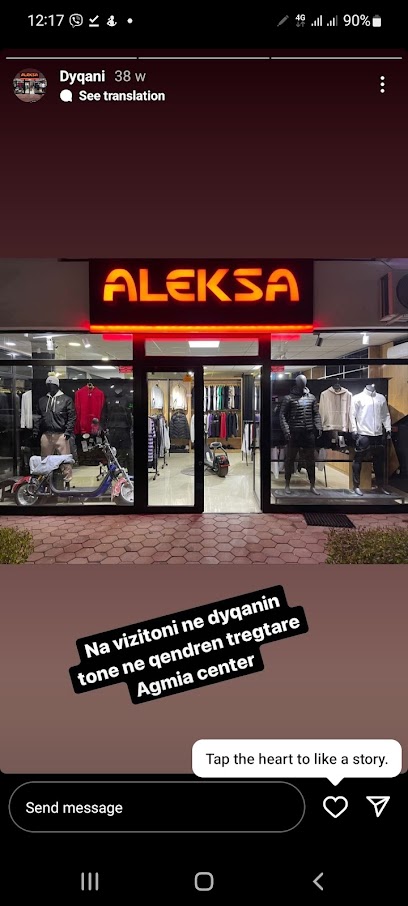
ELG Fashion
Discover your style at ELG Fashion in Gjilan, where quality meets trendy accessories to elevate your wardrobe.
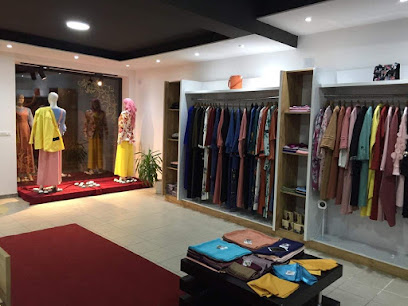
NISA STORE SHPK
Discover convenience at NISA STORE SHPK in Gjilan, where you can find everything from snacks to travel essentials in a welcoming atmosphere.

Atalanta Boutique
Discover unique fashion and local craftsmanship at Atalanta Boutique in Gjilan, a must-visit for stylish tourists.
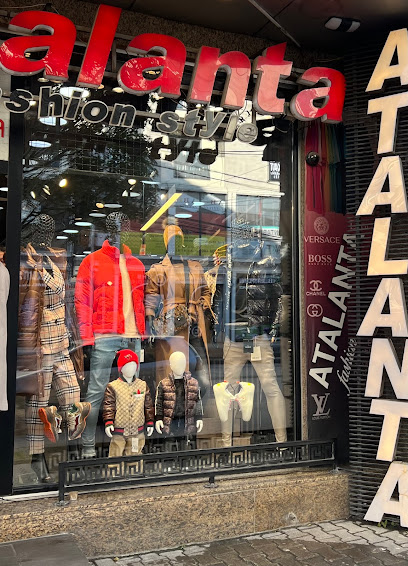
Essential bars & hidden hideouts
Taboo Bar
Discover the lively energy of Taboo Bar in Gjilan, where great drinks meet a friendly atmosphere for an unforgettable night out.
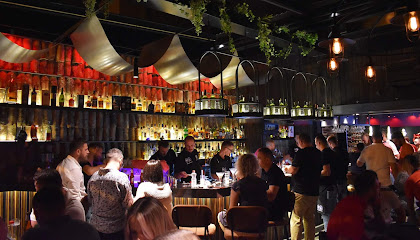
Vip Lounge Bar
Discover the perfect blend of elegance and relaxation at Gjilan's premier lounge, Vip Lounge Bar. Enjoy exquisite cocktails in a stylish atmosphere.
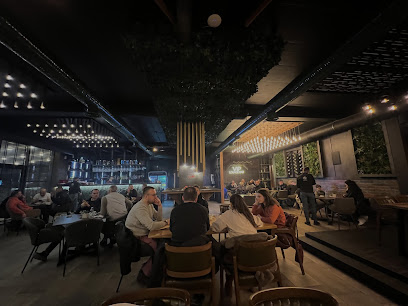
Merriment
Discover the vibrant nightlife at Merriment in Gjilan, where local flavors and a lively atmosphere await every visitor.
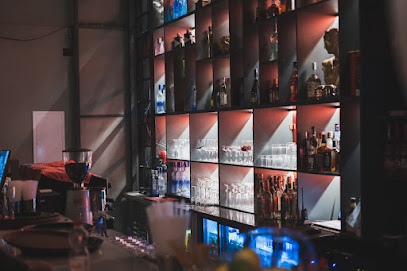
Gjinolli Bar & Grill
Experience the best of local and international cuisine at Gjinolli Bar & Grill in Gjilan, where great food meets a vibrant atmosphere.
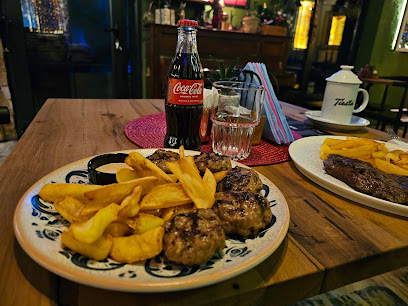
Mabel Lounge Bar
Discover Mabel Lounge Bar in Gjilan: A lively spot for drinks, local flavors, and vibrant culture in the heart of the city.
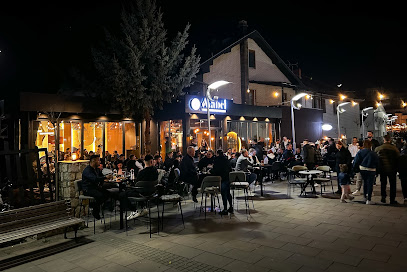
Dival Bar
Experience the vibrant nightlife of Gjilan at Dival Bar, where friendly vibes and exceptional drinks await every visitor.
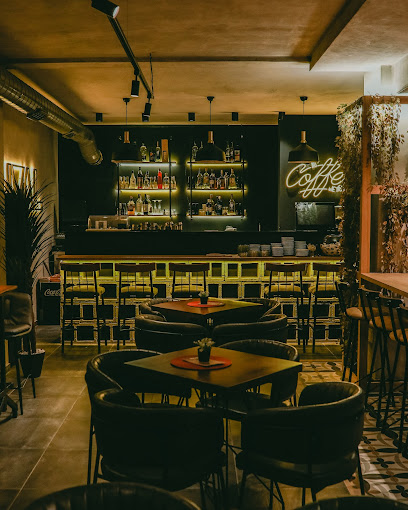
n'Shpi coffee&kitchen
Explore Gjilan's vibrant culture at n'Shpi Coffee&Kitchen, known for its cozy ambiance and exceptional macchiato.
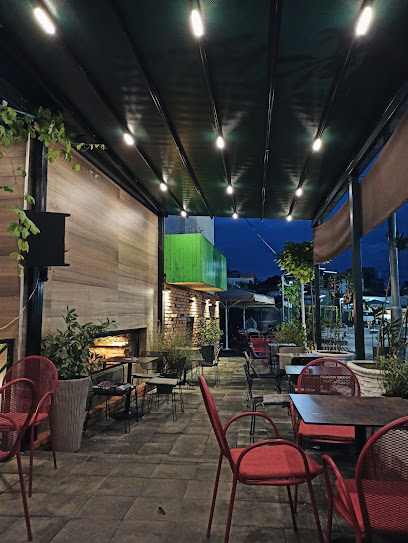
SOMA BAR
Discover the vibrant SOMA BAR in Gjilan, a perfect blend of relaxation and nightlife with a diverse drink selection and inviting ambiance.

District Lounge
Experience the vibrant nightlife at District Lounge in Gjilan, where drinks and ambiance create unforgettable memories.

The Pipo's bar
Experience the vibrant atmosphere of The Pipo's Bar in Gjilan, where local culture meets refreshing drinks and a warm welcome.
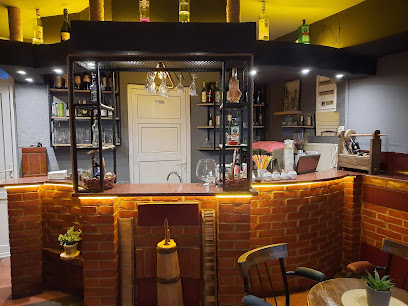
Momentos Bar
Discover the lively atmosphere of Momentos Bar in Gjilan, where great drinks and vibrant nightlife come together for an unforgettable experience.
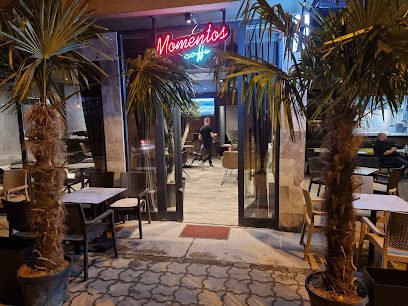
Primero Lounge Bar
Discover the vibrant nightlife at Primero Lounge Bar in Gjilan, where delicious drinks and a lively atmosphere await every visitor.
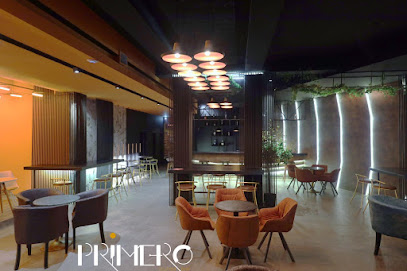
Trophy Bar
Experience the vibrant atmosphere of Trophy Bar in Gjilan, where sports, delicious food, and lively conversations come together.

Savana Lounge Bar
Discover the lively ambiance of Savana Lounge Bar in Gjilan, where great drinks and local entertainment create unforgettable nights.

Kllapa Pub
Discover the heart of Ireland in Gjilan at Kllapa Pub, where authentic cuisine and a vibrant atmosphere come together for an unforgettable experience.
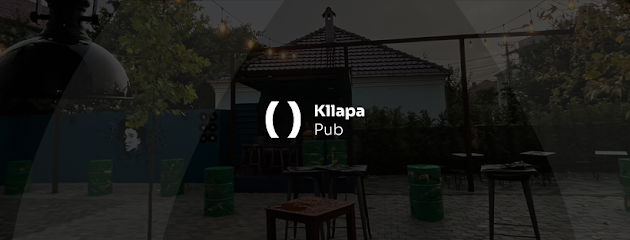
Local Phrases
-
- HelloTungjatjeta
[toon-jat-yet-a] - GoodbyeMirupafshim
[meer-oo-paf-sheem] - YesPo
[po] - NoJo
[yo] - Please/You're welcomeJu lutem
[yoo loo-tem] - Thank youFaleminderit
[fah-le-meen-deh-reet] - Excuse me/SorryMë falni
[muh fahl-nee] - How are you?Si jeni?
[see yeh-nee] - Fine. And you?Mirë. Po ju?
[mee-ruh. po yoo] - Do you speak English?Flisni anglisht?
[flees-nee ahn-gleesht] - I don't understandNuk kuptoj
[nook koop-toy]
- HelloTungjatjeta
-
- I'd like to see the menu, pleaseDo të doja të shikoja menunë, ju lutem
[doh tuh doh-ya tuh shee-koh-ya meh-noo-nuh, yoo loo-tem] - I don't eat meatNuk ha mish
[nook hah meesh] - Cheers!Shëndeti!
[shun-deh-tee] - I would like to pay, pleaseDo të doja të paguaja, ju lutem
[doh tuh doh-ya tuh pah-goo-ah, yoo loo-tem]
- I'd like to see the menu, pleaseDo të doja të shikoja menunë, ju lutem
-
- Help!Ndihmë!
[ndee-muh] - Go away!Shko!
[shko] - Call the Police!Thirrni policin!
[theer-nee po-lee-tseen] - Call a doctor!Thirrni një doktor!
[theer-nee nyuh dohk-tor] - I'm lostJam humbur
[yahm hoom-boor] - I'm illJam i sëmurë
[yahm ee suh-moo-ruh]
- Help!Ndihmë!
-
- I'd like to buy...Do të doja të blenja...
[doh tuh doh-ya tuh bleh-nya] - I'm just lookingPo shikoj vetëm
[po shee-koy vet-em] - How much is it?Sa kushton?
[sah koosh-ton] - That's too expensiveKjo është shumë e shtrenjtë
[kyo ehs-theh shoo-muh eh shtren-jteh] - Can you lower the price?A mund të zbresni çmimin?
[ah moond tuh zbres-nee chmee-meem]
- I'd like to buy...Do të doja të blenja...
-
- What time is it?Sa është ora?
[sah ehs-theh oh-rah] - It's one o'clockËshtë një ora
[ehs-theh nyuh oh-rah] - Half past (10)Në mes të dhjetës
[nuh mehs tuh dh-yet-ehs] - MorningMëngjes
[muhn-jes] - AfternoonPasdite
[pahs-dee-teh] - EveningMbrëmje
[m-brehm-yeh] - YesterdayDje
[djeh] - TodaySot
[soht] - TomorrowNesër
[neh-ser] - 1Një
[nyuh] - 2Dy
[duh] - 3Tre
[treh] - 4Katër
[kah-ter] - 5Pesë
[peh-suh] - 6Gjashtë
[gyahs-hte] - 7Shtatë
[shta-tuh] - 8Tetë
[teh-tuh] - 9Nëntë
[nuhn-tuh] - 10Dhjetë
[dh-yet-eh]
- What time is it?Sa është ora?
-
- Where's a/the...?Ku është një/i...?
[koo ehs-theh nyuh/ee] - What's the address?Cila është adresa?
[chee-lah ehs-theh ah-dreh-sah] - Can you show me (on the map)?A mund të më tregoni (në hartë)?
[ah moond tuh muh troh-goh-nee (nuh hahr-tuh)] - When's the next (bus)?Kur është autobusi i ardhshëm?
[koor ehs-theh ah-oo-toh-boo-see ee ahrds-huhm] - A ticket (to ....)Një biletë (për ....)
[nyuh bee-leh-teh (puhr)]
- Where's a/the...?Ku është një/i...?
History of Gjilan
-
Gjilan, also known as Gnjilane, is believed to have been settled since the Illyrian and Roman periods. Archaeological findings suggest that it was an important settlement due to its strategic location in the Morava River valley, providing a crucial link between the Adriatic and the Aegean seas.
-
The town of Gjilan gained prominence during the Ottoman rule, starting from the 15th century. It became an administrative center in the Sanjak of Vushtrri and later in the Sanjak of Prizren. The Ottomans developed the town's infrastructure, including the construction of mosques, bazaars, and public baths, which contributed to its growth and importance in the region.
-
During the Great War (World War I), the Austro-Hungarian forces occupied Gjilan. This period was marked by significant economic and social changes, as the occupiers introduced their administrative and military structures. The local population experienced hardships due to the war and occupation, but this era also brought about modern developments in the town.
-
After World War I, Gjilan became part of the Kingdom of Serbs, Croats, and Slovenes, later known as Yugoslavia. The interwar period saw Gjilan evolving as a regional commercial hub, with a diverse population that included Albanians, Serbs, Turks, and Roma. This diversity enriched the cultural tapestry of the town, influencing its architecture, cuisine, and social life.
-
World War II brought turmoil to Gjilan as it fell under Axis occupation. The town witnessed several battles and skirmishes between Axis forces and Yugoslav Partisans. Gjilan became a focal point for the resistance movement, and many locals joined the Partisans in their fight against fascist occupation. The post-war period saw significant social and political changes as Yugoslavia was reconstituted under socialist rule.
-
The late 20th century was a tumultuous time for Gjilan, as it was deeply affected by the Kosovo conflict of the 1990s. The town experienced significant ethnic tensions and violence, which culminated in the Kosovo War. Gjilan was one of the areas heavily impacted by the conflict, leading to displacement and suffering for many of its residents. The post-war period has been marked by efforts towards reconstruction and reconciliation.
-
Since the end of the Kosovo War in 1999, Gjilan has undergone substantial reconstruction and development. International aid and local efforts have revitalized the town's infrastructure, economy, and public services. Today, Gjilan is a vibrant town that blends its historical legacy with modern advancements. It serves as a cultural and economic center in eastern Kosovo, attracting visitors with its rich history and diverse cultural heritage.
Gjilan Essentials
-
Gjilan is located in the southeastern part of Kosovo. The nearest international airport is Pristina International Airport, approximately 50 kilometers away. From Pristina, you can take a bus or a taxi to Gjilan. Buses run frequently and the journey takes around 1 to 1.5 hours. Taxis are also available, but it is advisable to agree on a fare before starting the journey to avoid misunderstandings.
-
Within Gjilan, local buses and taxis are the primary means of transportation. The bus network is extensive and covers most parts of the city. Taxis are relatively inexpensive and can be hailed on the street or booked via phone. For a more flexible option, renting a car can be a convenient choice. Walking is also a viable option for exploring the city center, as many attractions are within close proximity.
-
The official currency in Kosovo is the Euro (EUR). Credit and debit cards are widely accepted in hotels, restaurants, and larger shops. However, it is advisable to carry some cash for smaller establishments and markets. ATMs are readily available throughout Gjilan, and currency exchange services can be found in banks and exchange offices.
-
Gjilan is generally a safe destination for tourists. However, it is always wise to take standard precautions. Avoid walking alone at night in unfamiliar areas and keep an eye on your belongings in crowded places. While Gjilan does not have specific high-crime areas targeting tourists, staying vigilant and aware of your surroundings is recommended.
-
In case of an emergency, dial 112 for immediate assistance. The local police station and medical facilities are available in Gjilan. It is highly recommended to have travel insurance that covers medical emergencies. For minor health issues, there are numerous pharmacies in the city where you can purchase over-the-counter medications.
-
Fashion: Do dress modestly, especially when visiting religious sites. Avoid overly revealing clothing. Religion: Do respect local customs and traditions. When visiting mosques or churches, dress conservatively and remove your shoes when required. Public Transport: Do give up your seat to elderly passengers. Don't eat or drink on public transport. Greetings: Do greet people with a handshake. A friendly 'Mirëdita' (Good day) is appreciated. Eating & Drinking: Do try local dishes and accept food offerings graciously. Don’t refuse hospitality, as it is considered impolite.
-
To experience Gjilan like a local, visit the vibrant local markets where you can buy fresh produce and traditional Kosovo goods. Engage with locals who are often friendly and willing to share stories about their city’s history and culture. Don’t miss the opportunity to explore the nearby Karadak Mountains, which offer excellent hiking trails and stunning views. Additionally, try to attend local events and festivals to immerse yourself in the local culture.
Trending Landmark in Gjilan
Nearby Cities to Gjilan
-
Things To Do in Kamenica
-
Things To Do in Ferizaj
-
Things To Do in Shtime
-
Things To Do in Podujevo
-
Things To Do in Vushtrri
-
Things To Do in Prizren
-
Things To Do in Mitrovica
-
Things To Do in Gjakova
-
Things To Do in Peja
-
Things To Do in Niš
-
Things To Do in Bajram Curri
-
Things To Do in Kraljevo
-
Things To Do in Lezhë
-
Things To Do in Krujë
-
Things To Do in Kragujevac







